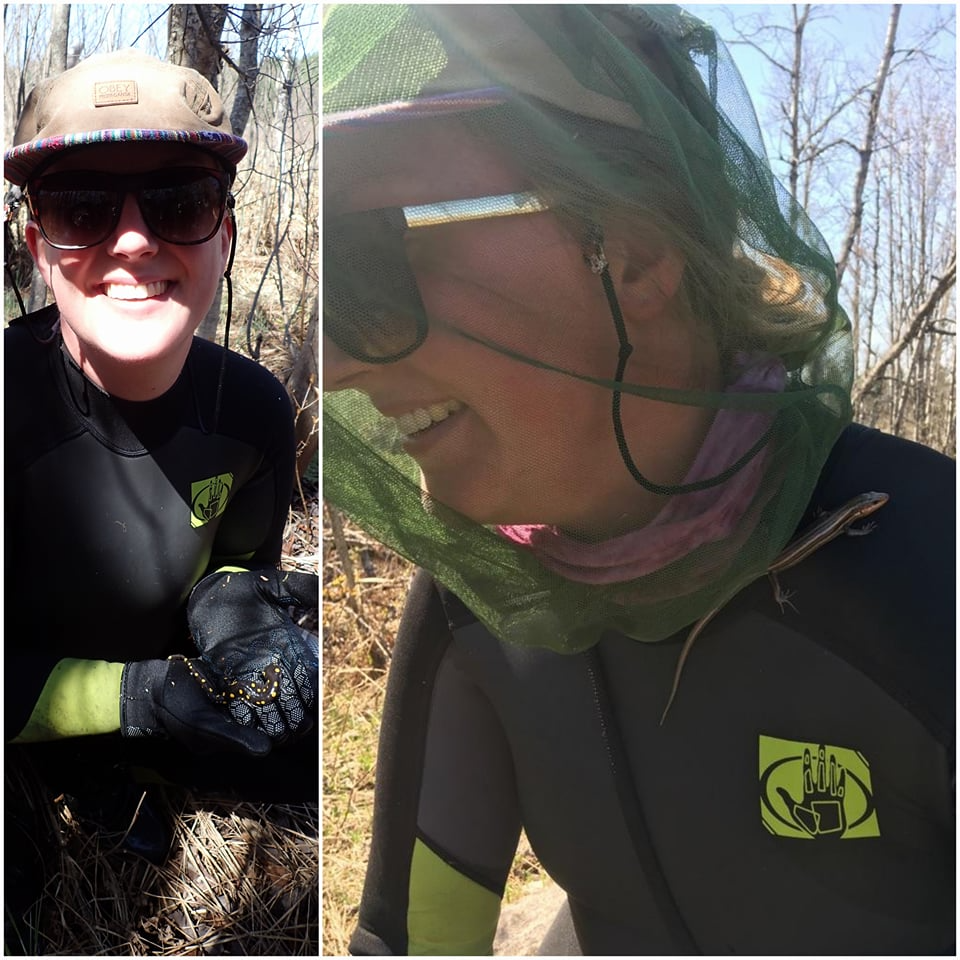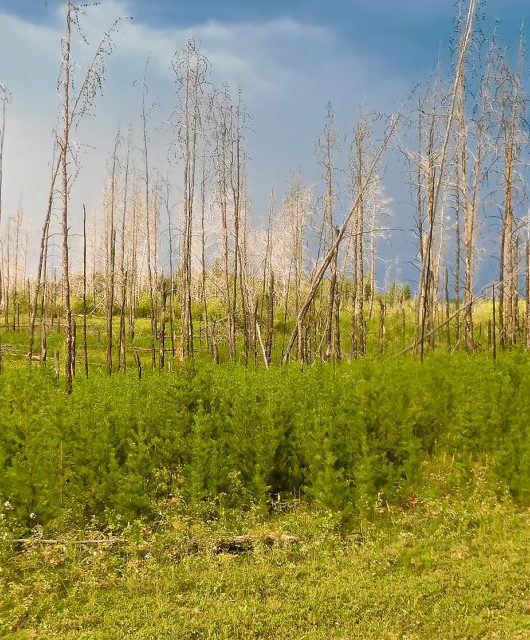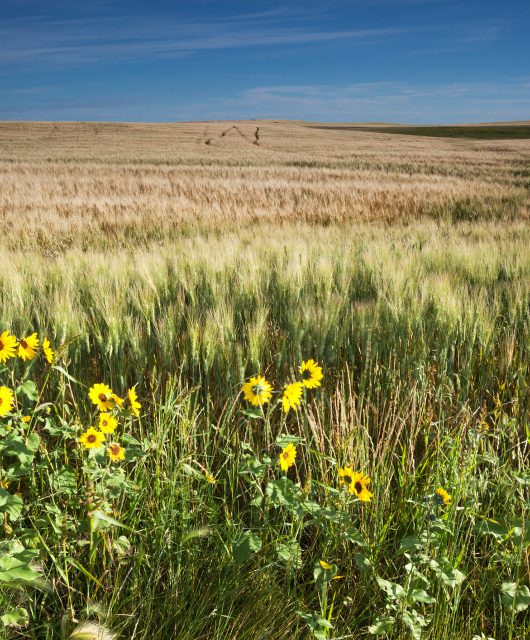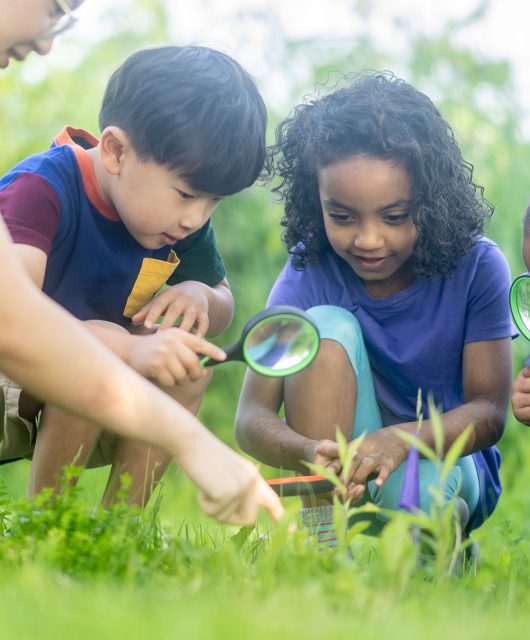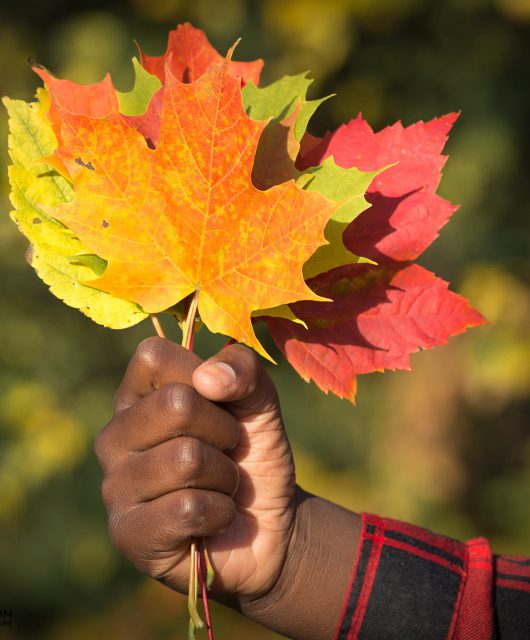Christina is a Group 1 participant in the Canadian Conservation Corps.
A few months ago I never would have thought I would be working my dream job — a turtle field technician.
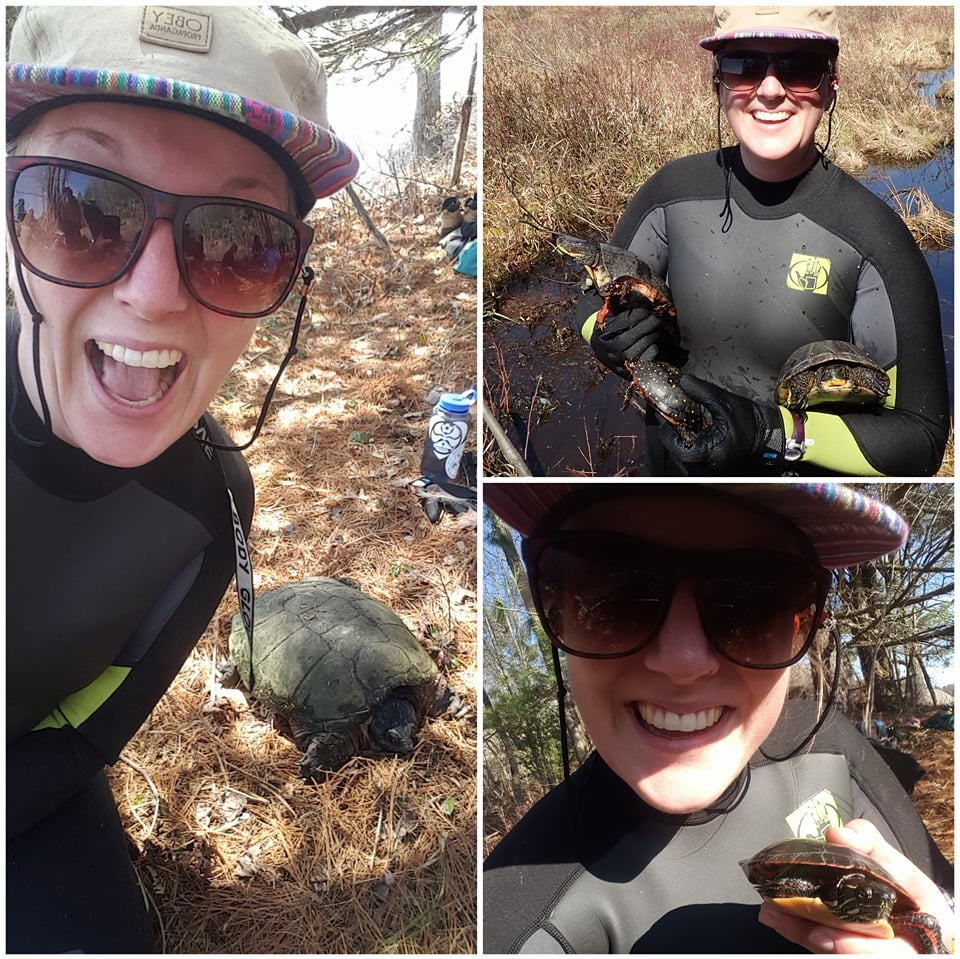
I get to go out into various wetland ecosystems and search for multiple turtle species to collect information to better understand population dynamics and help with all aspects of turtle conservation. Over the last two weeks I have had the opportunity of completing turtle boot camp. It has taught me everything from how to ID reptile and amphibian species of Ontario, to taking blood samples from turtles to run genetic testing. All of this is being done in the name of conservation.
The Nature of Scales
Here at Scales Nature Park the Saving Turtles At Risk Today (START) Project has been created with the help of the Canadian Wildlife Federation to help conserve native turtle populations and protect their critical habitat. During my experience at turtle boot camp, I got to work closely with and learn from a mentor I aspire to be like – Kelsey Bedard.
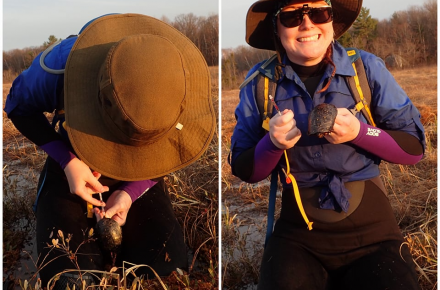
Kelsey has had a huge role in the creation of this project and ensuring the quality of research being conducted. She definitely took me under her wing as she did with many other participants of turtle boot camp to teach us the ways of turtle conservation. With the inspiration and the knowledge I gained from her, I successfully had a “four species day” on my third day in the field! This means I caught four of our six study species in one day – Blanding’s Turtles (Emydoidea blandingii), Spotted Turtles (Clemmys guttata), Snapping Turtles (Chelydra serpentina), and midland Painted Turtles (Chrysemys picta marginada).
Patience is Key in Conservation
I am definitely feeling super accomplished and completely in my element here. Turtles are my favorite creatures in the world, so getting to spend my days working with them and helping to conserve their populations and habitat means a lot in my books.
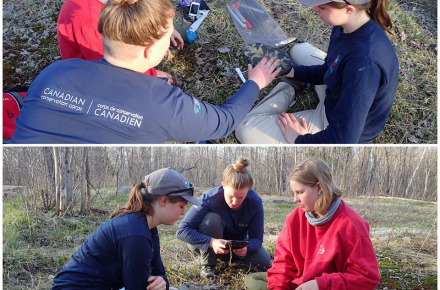
One of the biggest lessons I am learning through this field placement is patience. Patience is key while working in field searching for turtles. It is required for the act of conservation to take place. We are committing a lot of effort to find turtle populations and areas of critical habitat for these turtle species. However, it can take years for their habitat to actually be protected under government regulations and their populations to recover.
I have learned so much over the last few weeks. I am so grateful for this opportunity, gaining me experience that will help me with my future.
To follow along with me and other Canadian Conservation Corps participants, follow my Instagram @honu.24 and the group Instagram @conservationcorpscan
